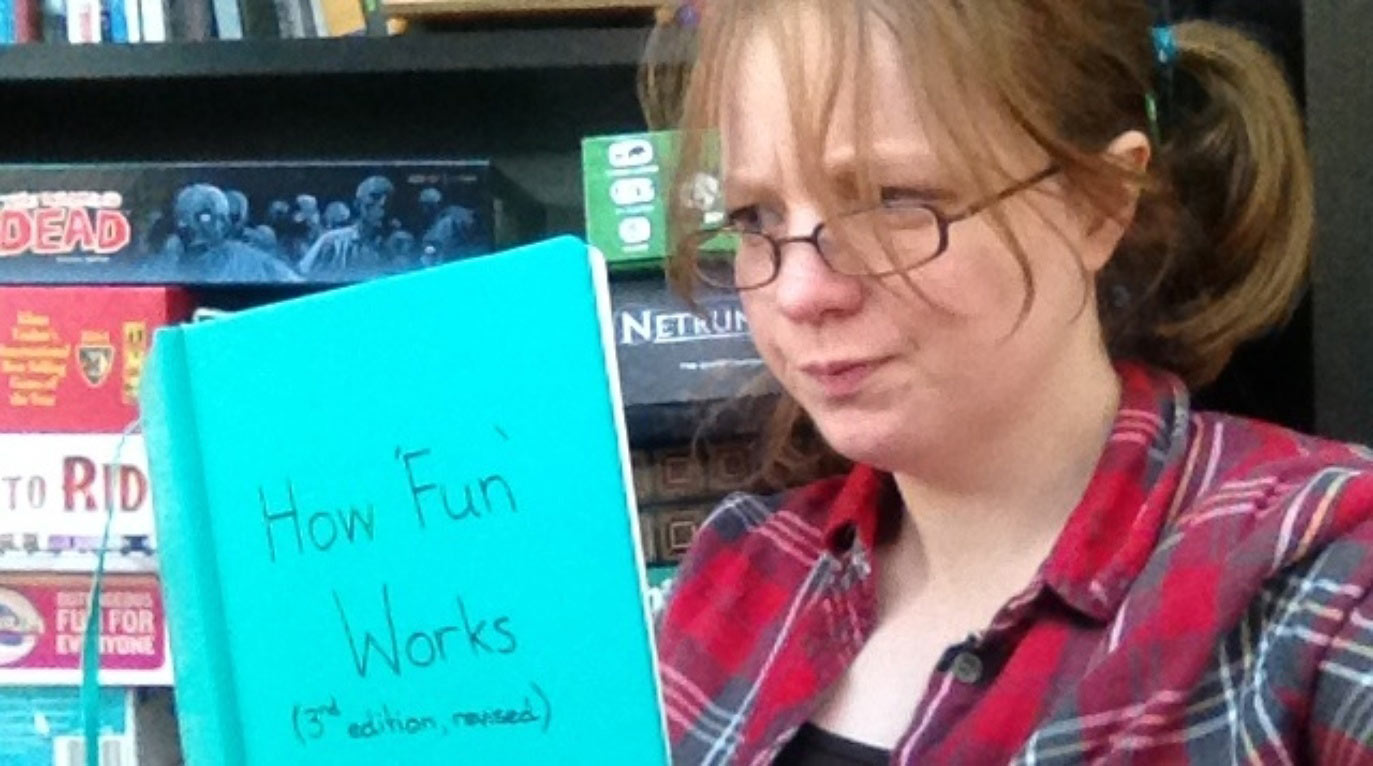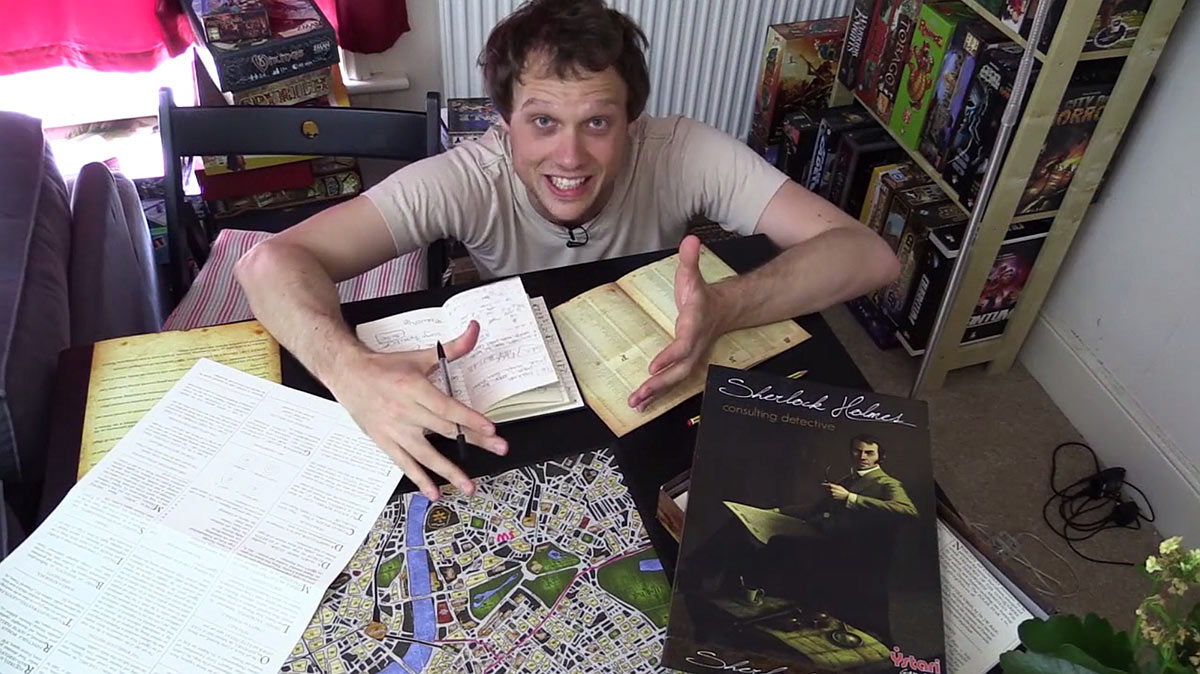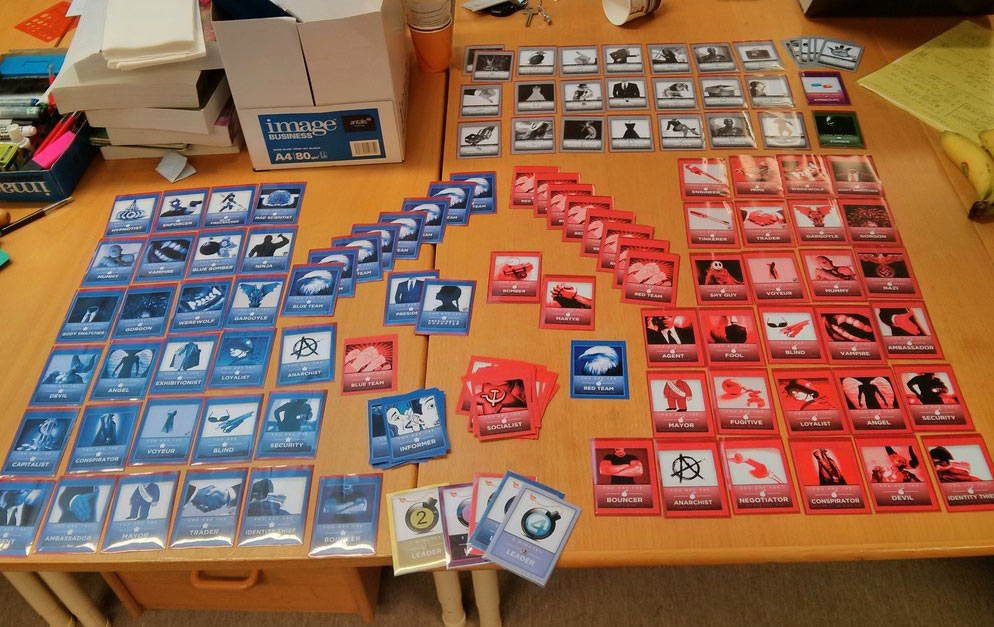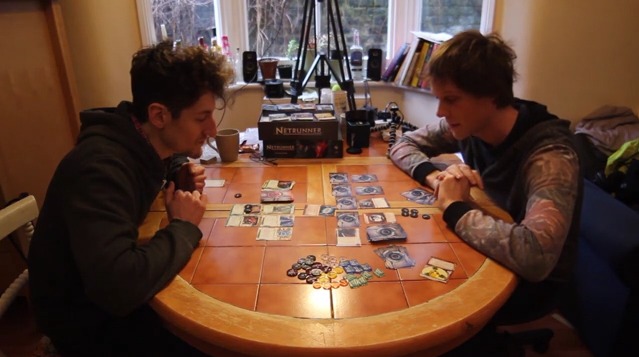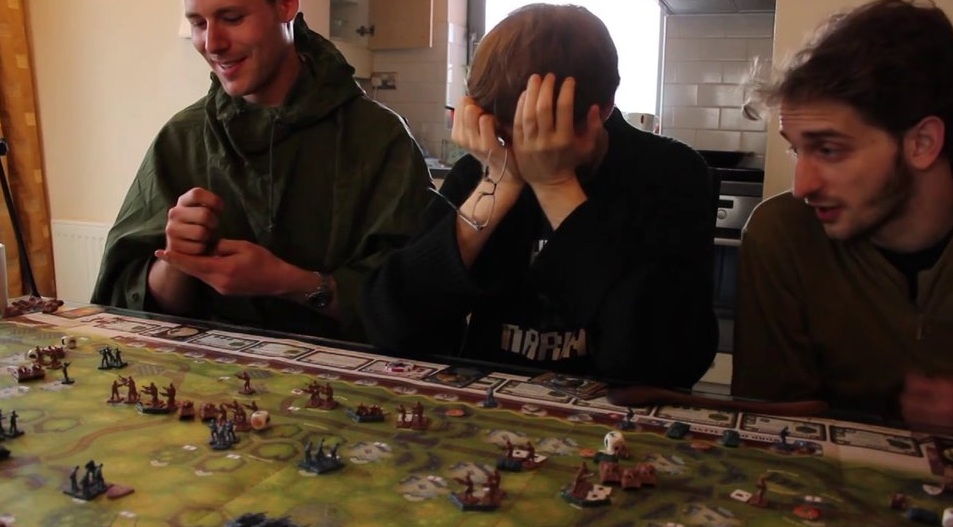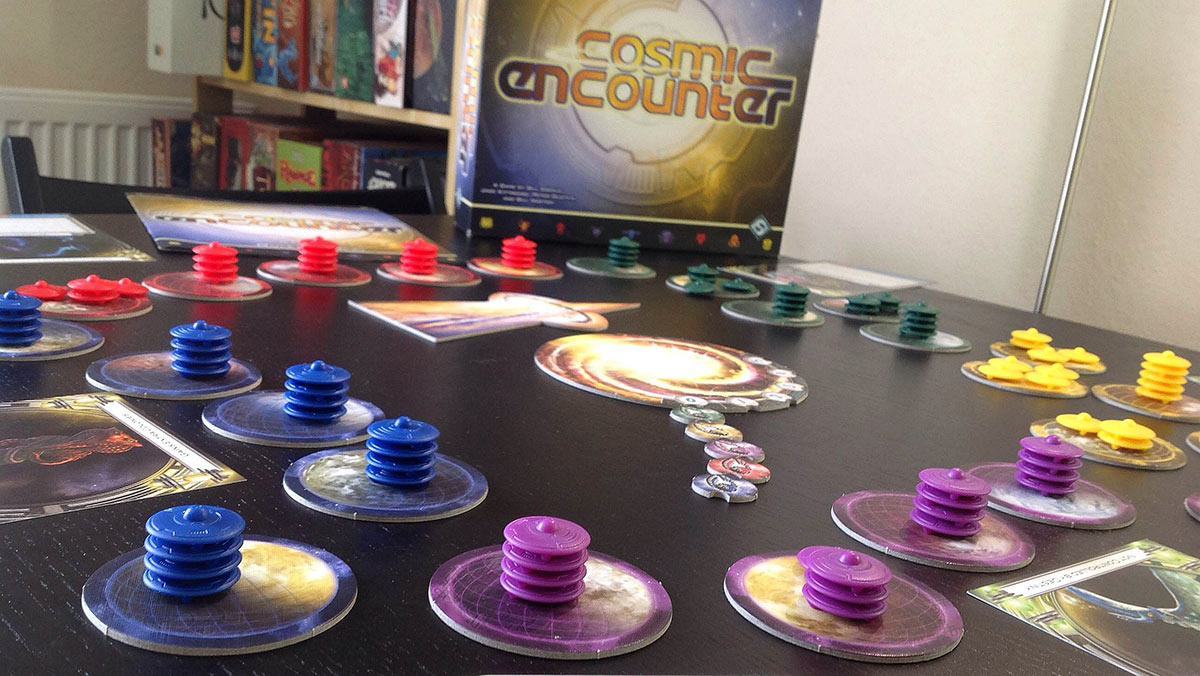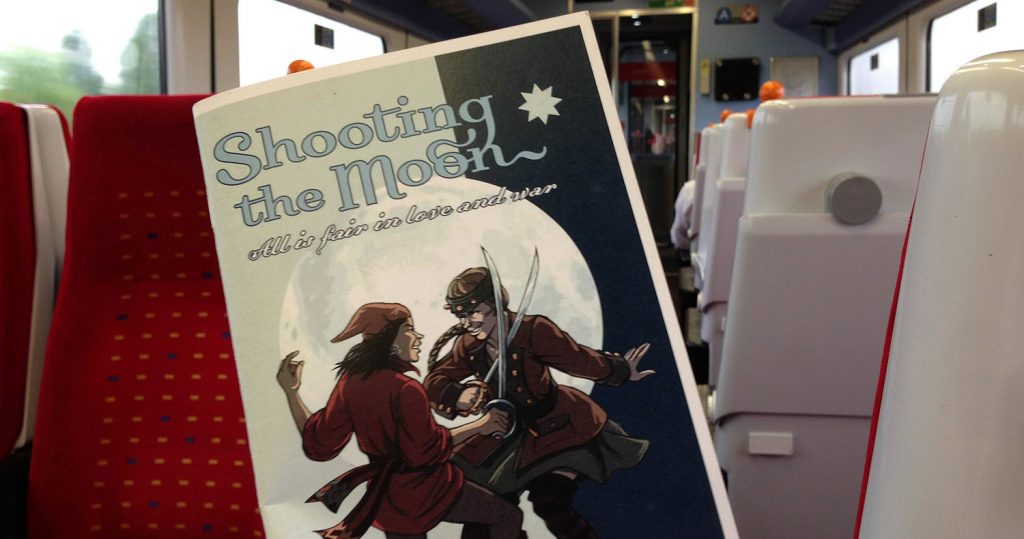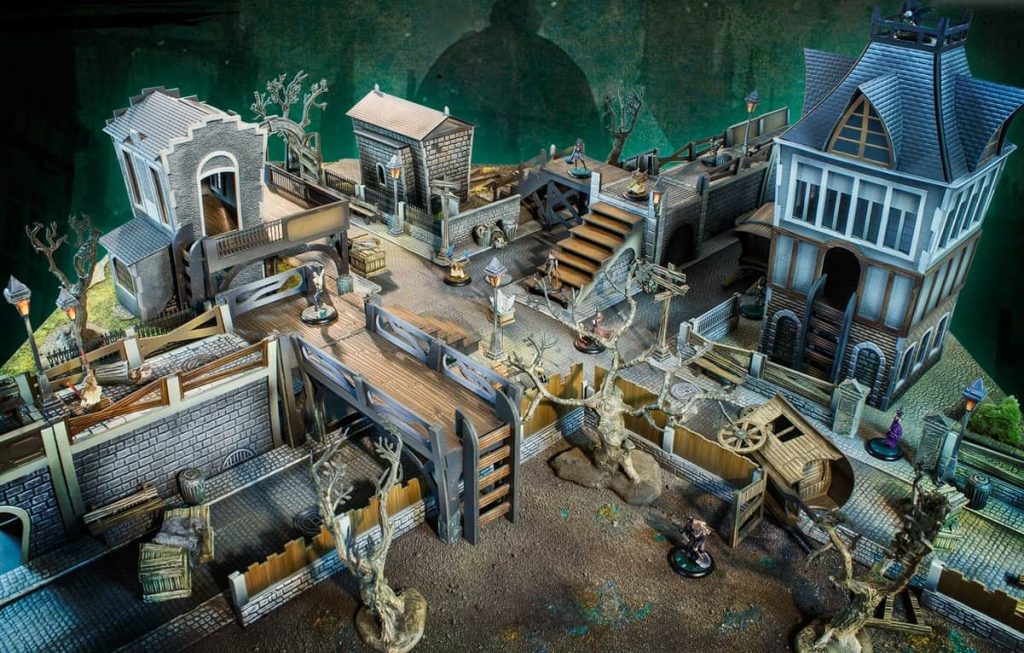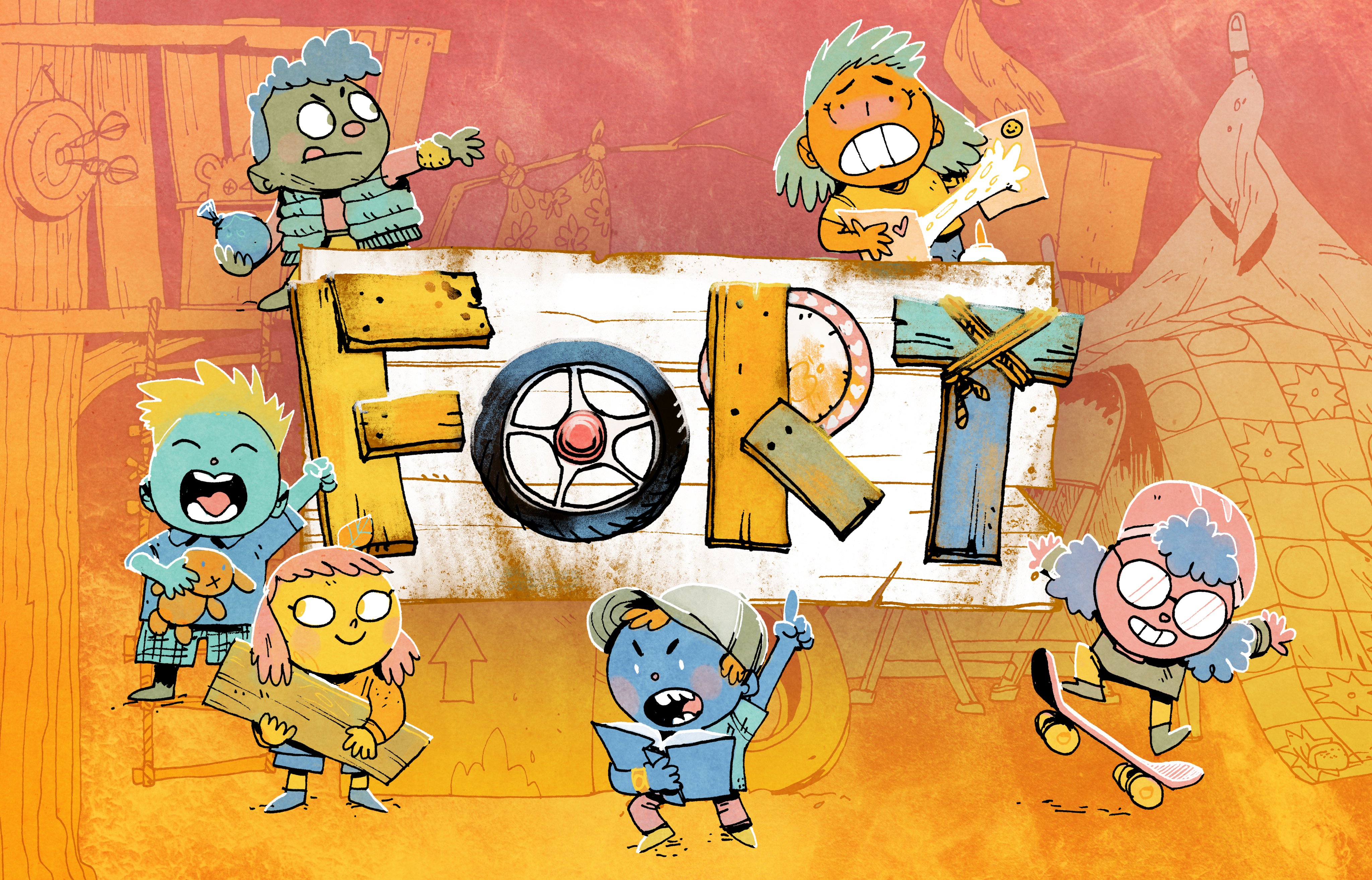Quinns: Here we go.
Warning: Contains opinions.
#5 SHERLOCK HOLMES CONSULTING DETECTIVE
Review here
Quinns: It’s rare that a game lives up to our fevered imaginations. That’s no fault of the game. Team SU&SD is just a clutch of giggling, grown up children and if our imaginations were any stronger we could probably float objects around the room like poltergeists.
Consulting Detective is different. You can’t mentally prepare for it. That pitch – ten new Sherlock Holmes cases in a box, each accompanied by a map of London, a city directory and a newspaper – is exciting enough to get you daydreaming of solving crimes. So you dim the lights, you invite your friends over, you bring your A-game and you get ready to have some fun. Then you start playing and not only does the game give you that crime you were expecting, the reality of solving a crime knocks you for six. The mystery sucks you in like the undertower of a enormous, dark wave. Suddenly your friends are arguing about motive. You’re gasping as you recognise the name of some bit-player in the newspaper. You’re trying to pick apart everything that doesn’t make sense as if it were a stubborn knot. You’re on to something, you are. The solution always feels nauseatingly close, as if it were sat right there at the table with you, and the rest of the world melts away.
It’s the best game for couples and the best solo game we’ve ever encountered, and for that alone it would make our top 10. What allows it to breach the fortress of our top 5 is the love and attention that went into making it. The double-sided A3 sheets that form each daily newspaper are brimming with period articles and personal ads that have nothing to do with the murder, immersing you in the 19th century. Sherlock himself is perfectly portrayed as playful, mysterious and bored, and you end up hating him and loving him in equal measure just as people do in the books. Best of all, if you follow the wrong hunch in a case your wild goose chase is as lovingly written as anything else. Each screwup sees you learning something about London’s fictional inhabitants that a better player might never encounter.
Yes, some of the cases are nowhere near as good as others. Yes, some typos in the current edition have you questioning every name and number that doesn’t make sense as if the mistake might be the game’s, and not yours. But you’d have to be more boring than we are to let that dislodge this classic from your heart. And it is a classic. That’s elementary.
#4: TWO ROOMS AND A BOOM
Matt: I think it’s a testament to just how bloody good this game is that I’ve only played it a handful of times. I spent a whole night at GenCon just running it – watching other people having a blast was enough to make me smile. And how many other games can you think of that scale as frightfully well as this? You can have 30 or maybe 40 people and it won’t affect the pacing or the quality of the game. It’s madness, really. Beautiful madness.
Quinns: I’ve played or supervised about 50 games of it now, in homes, bars, even in town squares and on opposing sides of a shipping container. What staggers me is that I’ve still seen just the basics of this. There are about 60 different roles you can include in your game, and I can’t have played with more than 20 of them. I’ve never had a fling with the game’s Vampires and Angels. Not once have I met a Mayor or hid from a Ninja.
I’ve also yet to try the incredibly small-scale and personal 6 player setup they describe in the manual. We’ll be receiving our boxed copy of the final game any day now (edit: We’ve been informed it’ll be closer to April), and I can’t wait for an excuse to dive back into it and keep exploring.
Matt: What surprised me most about Two Rooms and a Boom was how much fun you could end up having even when given a boring role. Prior to playing as just a RED TEAM or BLUE TEAM member I’d wrongly presumed that there wouldn’t be much that I could do. But the thing that makes this game so utterly fantastic is that the role you’re given at the start doesn’t dictate the nature of your game – that’s entirely up to you. I’ve seen players decide to devote all their time to trying to spy on players as they show each other their cards – that’s legal within the game rules so deal with it, suckers. I once spent a whole game having deeply misleading conversations with allies when I knew that members of the opposite team were in earshot. It worked – they got entirely thrown off the scent and put the bomber in the room with the wrong guy.
Hidden identity games can often fall flat if the people who end up being vital characters fail to dive in and embrace what they can do, but I think what makes Two Rooms so perfect is that you don’t need to be handed an important card to be instrumental in winning the game. Anyone at any stage can be as engaged or as passive as they wish to be. It’s probably the perfect party game.
Brendan: I concur. The most dramatic game of this I played at GenCon was when I got the vanilla Blue Team card and was lucky enough to find allies and the Prez quickly. After that, there was a perverse joy in putting our entire room on lockdown, yelling my suspicions and abuse at any new blood that walked in the door. I find there is a weird thing about hidden role games, like Resistance or Werewolf: The Law of the Loudest. The person who talks the most, the fastest, the loudest — they tend to be believed. And while this is still true of Two Rooms, it is also entirely possible to project the image of a quiet wallflower, yet retain a hefty amount of influence, pulling strings from the sidelines by making shady deals with the Neutral characters. It is pure politics. As far as games of trust and information go, this is the daddy.
Paul: It’s the best big game. It’s probably the best game for parties or for people who want to do that Resistancy, Werewolfy bluffing thing. It’s got all those optional roles you can swap in or out. It’s so good. Show me your card. C’mon, just show me your card. Show me.
#3: ANDROID: NETRUNNER
Review here
Let’s Play here
Quinns’ article on running a tournament here
Life Hacks: A Netrunner Story here
Quinns: It’s inaccessible. It’s expensive. It’s exhausting. But after a couple of sleepless nights I decided that to put it anywhere else on this list would be dishonest.
Never mind that in the last two years I’ve played more Netrunner than every other game on our top 25 put together. I’ve so customised my Netrunner experience that if you entered my house and opened the box, you wouldn’t find any of the original game. “Where’s it gone?” you’d ask. “Well,” I’d say, sheepishly. “My cards are in Ultra Pro binders and I’ve replaced the tokens with these fire acrylic ones, which you’ll find in my deckbox. I just use the box for the other paraphernalia. All these different hues of card sleeves. Two notebooks on lessons and observations. Draft packs, deck boxes, posters, alternate art cards. Um.” And then I’d probably ask you how you got in my house.
This game has captured my heart, and if anything I’m playing more now than ever. Though on team SU&SD, every way to enjoy Netrunner is represented.
Brendan: You’re damn right it’s exhausting. I went to our local Netrunner evening last week and came away with 3 wins, 4 losses and 1 splitting headache. But I was also having a great time. Weird.
In a lot of similar ways, Netrunner splits me down the middle (metaphorically). On the one hand I am deeply into it, the metagame, the deck-tweaking, the nervous head-to-head matches. On the other hand, I don’t fully buy the “this is not a TCG, this is an LCG” line. I get the difference between the two (and it is a good difference) but it is still the most expensive thing to get into. Here in our shared wordscroll, Quinns has written a little reminder line that reads: “[Brendan talks about his intermediate way of playing the game here]”. The thing is, I don’t think there is an intermediate way of playing Netrunner. You either go Core or go Mad. The problem is that you can go Mad for this game without the means for it. I don’t play Intermediate-ly. I am just Mad but Poor. Or at least, not willing to go hundreds of pounds deep all in one sitting.
The sad result is that the longer you put off “getting into” Netrunner, the harder it is to catch up – to buy a neat stack of the expansions. You don’t need to be all caught up to win. But you do need to be all caught up to win often. I still love it. It is the only board game I will watch matches of online, as if it were a sport. The game itself is brilliant, refined, and in my better moments it makes me feel like bloody Jernau Gurgeh from Iain Banks’ Player of Games navigating some alien masterpiece. But consider what I’ve said about the (ongoing) cost my own personal disclaimer. Because Netrunner is also hugely consumeristic, indicative of our never-ending human greed for more power, better toys, and new ways to destroy shit.
Well, at least it fits the theme.
Paul: Actually, I don’t think it’s inaccessible. I think that’s totally wrong. It has a lot of possibilities and a lot of depth. Netrunner is a game that suggests all kinds of combinations of cards and powers, hours and days and weeks invested in deck-building, but the core mechanics of the game are actually really simple. Runs are a relatively basic concept. The bluffing and misdirection that a corp might engage in is as teasing as a round of poker. Understanding how Netrunner works is easy, knowing how to work it well is the real challenge.
I don’t care for any of this deck-building or daily nose-in-cards dedication and, as far as I’m concerned, it’s my hand, not my grip. But I still enjoy Netrunner. I enjoy playing with decks other people give me and seeing how cards play off one another, just like I might enjoy combining Lego bricks to make different shapes. What I like about Netrunner is how it’s managed to grow into something huge and, potentially, extremely deep, without losing sight of simple game mechanics. That’s great.
Pip: I only own the core set, still. I decided not to invest after the main meetups that people went to moved to a new location and I wasn’t attached to the game enough at that point to seek out nearby strangers. To be honest, I like Netrunner and I liked watching Netrunner but a few things put me off playing it. The first is simply that it’s possible to spend a lot of money on new cards, extra core sets and all manner of peripherals. I’m someone who has poured an obscene amount of money into Dota over the last few years so I was super wary of taking up another game with potentially no spending cap!
The other thing is that it’s been so long since I Netran that I often don’t know the current metagame, or even any of the new cards. I think my core decks would probably just about hold up (would they, Quinns???) but I would have no sense of what traps I might be about to trigger, what I should be guarding against, any of that predictive stuff. You’d start to pick it back up as you play people a few times or get familiar with the cards but that prospect of being overwhelmingly lost combined with the temptation to spend is what’s keeping me an occasional vanilla dabbler rather than a competent corp-er.
Quinns: You just gotta run. Run like your life depends on it. Which it usually does.
#2: MEMOIR ‘44
Review here at 15:02
Let’s Play of Operation Overlord here
Quinns: Oh god it’s good. It’s so good. It’s just so good.
Every time we mention Memoir ‘44 we always get emails telling us to look at Commands & Colours: Ancients or Napoleonics. As in, the other games that use Memoir’s same system of command cards. And maybe they’re better games! I can believe that. But for me, it’s still an argument as effective as the Maginot Line.
Paul: Grand, yet ultimately missing the point? Yes. I had fun with BattleLore and I’m sure the Westeros thingy is also fun if you want to put knights on horses and pull your best grumpy Stannis face, but Memoir just feels right, feels like the best use of those systems. It’s so well supported, too, with chunky campaign books and extra armies to field.
Quinns: Yes! Does Command & Colours have tiny plastic army men and plastic sandbags? Does it have those lengthy campaign books, or expansions covering every single front of the war, or planes, or snow, that can increase the length or breadth of the game as you please? Do they have motherf***ing OPERATION OVERLORD where a supreme commander sends dispatches to three other generals fighting for them for a whopping 8 player wargame?
Or you can just own the base game and that’s fine too. You can’t play just one game of it. You always decide to have just one more. Then someone opens a bottle of whiskey and it’s the end of game four and oh god what time is it
Pip: Oh God – Operation Overlord was excellent. It’s not for just any game I’d get up obscenely early on a weekend, dress up in a friend’s fiance’s territorial army kit and spend four hours shouting at you lot from chair trenches in Paul’s living room.
I do not regret a single part of that Let’s Play, by the way. Hang on. No, I regret not having one of those weird wooden rake things for moving troops about on the board. We had to use a spatula instead which felt downright unprofessional.
#1: COSMIC ENCOUNTER
Video review here at 26:29
Written review here
Brendan: Is it bad to admit I have only played our top-ranking game once in my entire life? Is that shameful?
Quinns: Uh. No. No, not at all.
SUSD Supercomputer: Warning. Shame detected.
Quinns: Uh oh.
Supercomputer: Initiating shame removal procedures. Shame receptacle preparation complete. Termination of shame in 5…
Brendan: What?
Supercomputer: 4…
Brendan: Wait!
Supercomputer: 3…
Brendan: Don’t do this, computer!
Supercomputer: 2…
Brendan: I love Cosmic Encounter! I LOVE COSMIC ENCOUNTER.
Supercomputer: …
Everyone: …
Supercomputer: Shame destruction postponed. Have a productive afternoon.
Brendan: I’m going to lie down.
Matt: Cosmic Encounter is my favourite game. I can’t recall how many times I’ve played it, but the cards seriously need cleaning at some point soon. There was a period in my old house when friends of friends would come over to visit wholly for the purpose of checking it out – having a go at this legendary box of alien fun. Sometimes you draw a set of dull alien roles and the game ends up being less interesting than usual, but the consistency with which Cosmic Encounter creates fascinating and exciting scenarios is something that makes it an absolute must-have. It’s the only game where I’ve found myself religiously buying every single expansion – not just because I want to play them myself, but because I want to have a complete set in the style of this print-run. In ten or fifteen or however many years, I want to be able to get Cosmic out of the cupboard and play it with my currently hypothetical kids. Cosmic Encounter is the best game I’ve ever played, and I’m determined that it’s going to be the “family game” within my household. I can already tell I’m going to be a nightmare of a father.
Quinns: It’s just so fresh every time you open the box. I’ve played a ton of Memoir and Two Rooms and a Boom, so much so that those games are like old friends, and that’s nice. But Cosmic Encounter is something even better, especially so if you have one or two (or three, or four) of the current edition’s excellent expansions. When I set it up it’s like playing a game for the very first time. This crazy box is going to entertain me somehow. I just don’t know how.
Paul: It’s singular. It’s not a new game, since it’s been around for decades and endlessly reprinted, yet it’s still updated and supported. It’s not a particularly complex game, but it offers up all kinds of combinations of races and powers that can be hilarious and confusing and silly and intriguing. It’s not balanced, because it doesn’t have to be. It doesn’t even have particularly interesting or unusual mechanics or systems, since its rules are very simple.
Still, it’s a game you can introduce to just about anyone. It’s a game you can immediately play again without any sort of fatigue, because you know the next game has more surprises in store. I don’t know if I can ever fully get behind the idea of naming a number one game or a best game, but Cosmic Encounter is probably board gaming’s best advert. It’s the best thing to get more people into it. It’s the best thing to get people away from the sin and sickness of things like Cluedo and healing themselves with this rehab. It’s very special and it’s brought a lot of happiness and good moments into the world.
HONOURABLE MENTIONS FOR ALMOST MAKING THE TOP 25:
- 7 Wonders
- Archipelago
- A Few Acres of Snow
- Carcassonne
- Castles of Burgundy
- Catacombs
- Condottiere
- Cutthroat Caverns
- Cyclades
- Descent: 2nd Edition
- Dungeonquest
- Jaipur
- Jungle Speed
- K2
- Libertalia
- Sheriff of Nottingham
- Mage Knight
- Mage Wars
- Merchants & Marauders
- RoboRally
- Survive: Escape from Atlantis
- Ticket to Ride
- Trains
- Village
DISHONOURABLE MENTIONS FOR NOT BEING IN PRINT
- Fury of Dracula
Quinns: And that’s all she wrote! Well, it’s all we wrote. 10,000 words altogether. That’s like a tiny book!
Such a shame to see so many games left outside in the Christmas cold, though. We’ve got almost 50 games here altogether. If only there was something we could do next year to prevent so many being absent from a “top” list. If only…
What do you think, guys? Any ideas?
[For other instalments of our 2014 Top 25, here’s #25 to #21, #20 to #16, #15 to #11 and #10 to #6.]

